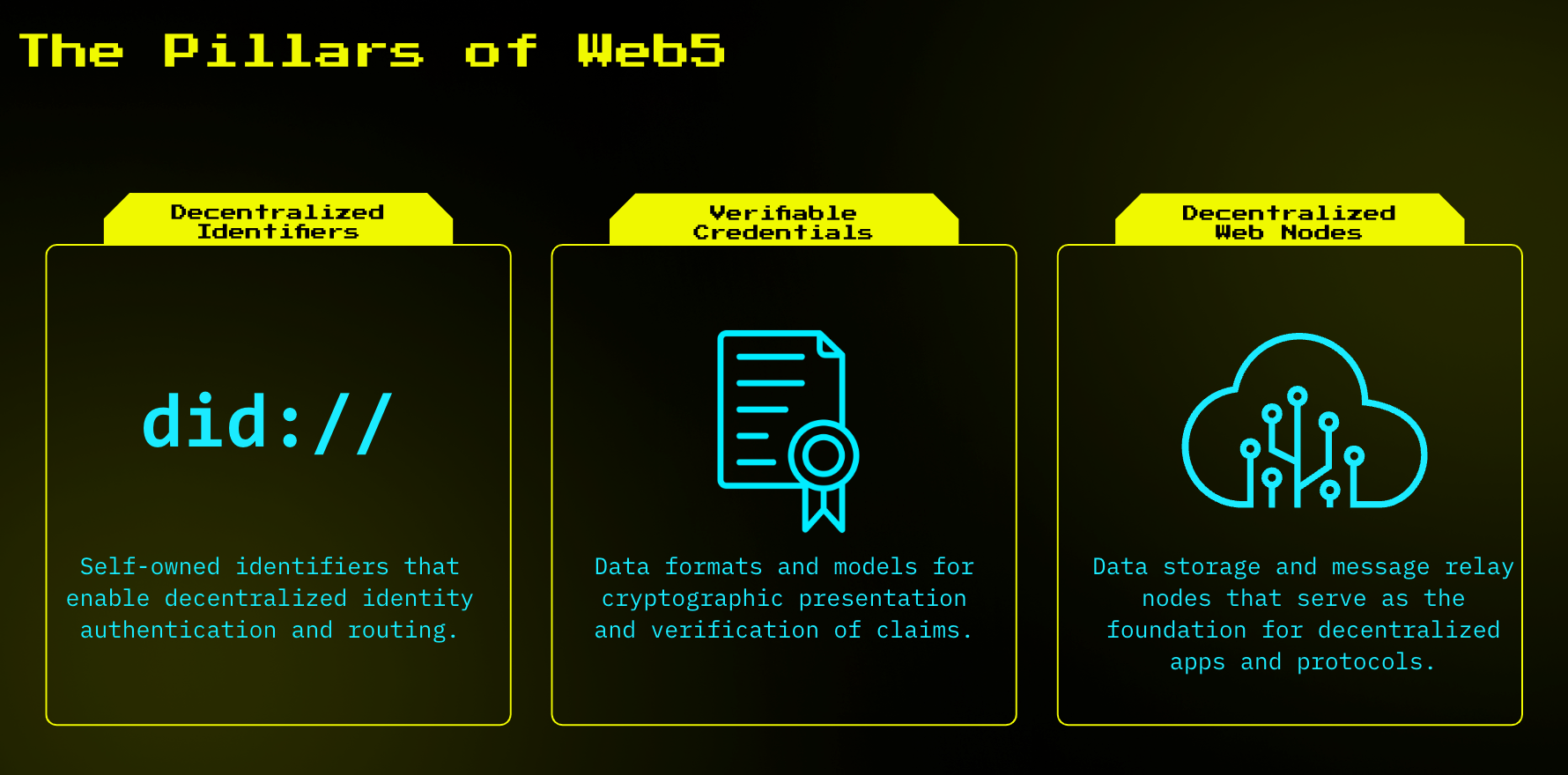The Human API Experience with Web5
I've been reading a lot about Web5 and it's exciting to say the least.
But before you roll in with the jokes and the memes, it's not called Web4, simply because it's a synchronization between the web as we know it today - Web2 - with the blockchain and decentralized nature of Web3.
So, Web2 🤝Web3 = Web5.
What exactly is Web5?
Web5 is a decentralized platform. That allows users own their own data and identity and be able to reuse any of this information across multiple platforms in the way that they choose. Web5 is built on three core pillars:
- A unique identifier called Decentralized Identifiers (DIDs). This is what's going to be stored on the blockchain and also points to the documents or anything that is holding your unique data or identity.
- The second one is Verifiable Credentials (VCs). which allows you to verify, as the name implies, some of the information that is shared. So, for example, I'm Nigerian, and if I have to verify my education certificate, I go through a body like WES. And they are able to, stamp with their digital identity that yes, this information is valid. I think this comes into play when you're working with important organizations in web5 space.
- Decentralized Web Nodes (DWNs) which are basically your own kind of individual server or multiple servers as the case may be. Where you can host your DIDs, your documents, your information to share with people and other websites.
 Core Pillars of Web5. Source: TBD
Core Pillars of Web5. Source: TBD
These three core pillars, Decentralized Identifiers, Verifiable Credentials and the Decentralized Web Nodes work together to ensure that the Web5 protocol is being utilized to its maximum, protects you and gives you the control over your data and identity.
Why should you be excited about Web5?
I think the biggest thing for me would be the fact that my data and identity is totally decoupled from any application that I choose to use. So, my personal information and any other unique data can easily be reused and reshared across multiple platforms without having to fill a form or go through another onboarding process because that information is already there and accessible through the Web5 protocol.
Of course, this requires that these applications also support Web5 because that means we need to build decentralized web applications before we can be able to take advantage of this protocol in its own right.
An example use case is that I can have a music playlist run on multiple services without having to manually compile them on each service simply because I have a playlist entry on one of my decentralized web nodes accessible through my identifier.
With this I can easily create a playlist on a platform on Spotify, and if I choose to use another like Apple Music, my own data is already there and ready to go.
I like to call this the Human API experience where we don’t have to manually fill forms or reshare the same sets of information over and over again with platforms we want to grant access. As long as we, humans, are directly in control of our data and identity, this can be shared with any decentralized service at the click on the button - or a blink of an eye if we ever get to that point 😀
Web5 is still under development.
Web5 is still under development, constantly being improved, so there are a few concerns here and there, like what can this platform do with information that you've shared with them? Are there going to be like laws like GDPR and the likes being responsible for enforcing these terms of service etc.
There are still grey areas that need to be fleshed out, conversations that still need to be had, but if you want to get an update on what exactly is going on right now with Web5, there's a website called areweweb5yet.com and it covers the pillars of Web5 and how much progress has been made in figuring stuff out and also building up the entire infrastructure.
It's a work in progress that I am excited about. If you are as excited, there are a few resources you can take a look at to learn more about this technology.